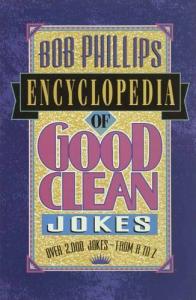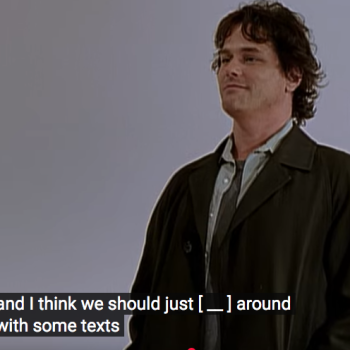• My wife needed a laugh last weekend, so we wound up re-watching The Aristocrats, the documentary in which nearly 100 comedians retell, discuss, and riff on one old, filthy joke. The joke is still a bit of an anticlimactic dud. The documentary is still just as funny — and as filthy — as it was when we watched it soon after it first came out in 2005.
But there’s also a touch of sadness when watching this film now. A lot of the very funny people interviewed in that movie are no longer living. It’s not just the elder generation of comics who appeared in the film to represent the ancient history of that craft. It isn’t surprising to realize that folks like Shelley Berman and Larry Storch and Don Rickles and Phyllis Diller are no longer with us — it was surprising they were all still around in 2005. But there are so many others as well: George Carlin, David Brenner, Robin Williams, Bob Saget, Gilbert Gottfried, Carrie Fisher, Richard Lewis, Fred Willard, Dick Smothers, Rip Taylor, Tim Conway …
 I mean, geez, at some point you start to feel like you’re watching the In Memoriam reel at the Friar’s Club.
I mean, geez, at some point you start to feel like you’re watching the In Memoriam reel at the Friar’s Club.
I suspect this is a big part of the current, extremely unfunny crankiness among aging comedians fretting about “cancel culture.” Their worries about this don’t really stem from a threat of censorship or censoriousness, but from the inevitable fact of their own mortality.
“Kids these days are too uptight” is really just an unsuccessful way of grappling with the fact that kids these days will still be alive in 20 or 30 years and you probably won’t be.
(I think these comics’ thoughts about “cancel culture” are also driven, in part, by what Atrios describes here: “It’s the behavior of the people in charge that matters, not that of the students. It’s the latter that other powerful people (New York Times editors and pundits) obsess about, because they are mad at their own children for hating them.”)
Paul Provenza’s ribald documentary doesn’t really get into this, but I think jokes like “The Aristocrats” can help us to understand what the “cancel culture” panic misunderstands. This is a joke that involves gleefully imagining the violation of as many taboos as possible — moral, sexual, hygienic, whatever. And in doing so, it reiterates that such taboos are, in fact, taboo — that they are things we all agree and all ought to agree are repugnant and immoral. The joke doesn’t work otherwise.
• Speaking of dirty jokes … Texas mega-church pastor Josh Howerton threw himself into hot water by telling a gross joke from the pulpit one Sunday morning.
Howerton’s “wedding night” joke bombed with some folks in his congregation because it was horrifically misogynist and creepy, and it bombed with some other folks there because they find any mention of wedding nights and Honeymoons too naughty to be joked about or mentioned in church.
It didn’t help that Howerton’s initial response was to defend his joke by arguing that his critics were ignoring the elegant parallelism of its set-up, testily reminding everyone that it wasn’t merely a joke involving creepy, demeaning stereotypes of women but also a joke involving creepy, demeaning stereotypes of men. He complained that his “just a joke” was described by others as his “his wedding-night advice to women,” just because he framed the joke as, um, his wedding-night advice to women.
It also didn’t help that his eventual “apology” for telling such a joke from the pulpit seems to have been borrowed, nearly verbatim, from the apology a different pastor offered after telling a different misogynist joke from the pulpit. I don’t think it’s accurate to describe that as “plagiarism.” I think it’s worse than that — a work-shopped PR statement developed as a kind of best-practices boilerplate for mega-church pastors who like to tell jokes expressing their disdain for women.
If there was any plagiarism here, it was the joke itself, which I’m guessing was stolen from some mid-20th century comic from back in the era when “men are like this, but women are like this” gags were cutting-edge. Jokes like that were always based on crude, sexist stereotypes that now seem more dated than Rickles’ act.
The stereotype here — and the joke in its simplest form — is this: Women dream about their wedding day while men dream about their wedding night.
If Howerton had just offered that bare-bones version of the joke he’d probably have gotten in less trouble, although even in that skeletal form it still contains all the implicit misogyny — the dismissal of women’s concerns and women themselves as silly, frilly nonsense, the idea that only men care about sex and that wives are obliged to provide it, etc. Yes, even that spare version of this “joke” reinforces the worst aspects of purity culture and offers a recipe for unhappy marriages and unpleasant sex lives, but if the congregation had needed to tease out all of those meanings themselves they might have been less upset with Pastor Josh for spelling it out explicitly.
But that’s what he chose to do — spelling it out explicitly and highlighting the creepiest aspects of the “joke.” Here’s how he told it:
This is a gold nugget of advice I was given by a mentor. … Guys, when it comes to her wedding day, she has been planning this day her entire life. She got her first like wedding magazine when she was 14. She draped the blanket around her like it was her wedding dress when she was a teenager. She did the towel over her head. It was a little veil. All the stuff. She’s been planning this day her whole life. So here’s what you need to do, man. When it comes to that day, just stand where she tells you to stand, wear what she tells you to wear, and do what she tells you to do. You’ll make her the happiest woman in the world.
Now ladies, when you get to his wedding night, he’s been planning this night his whole life. So what you need to do is stand where he tells you to stand, wear what he tells you to wear, and do what he tells you to do. You’re gonna make him the happiest man in the world.
Yeah, there’s a lot to unpack there. Shelves of books could be written about all that’s askew with that and the harm that men, women, and marriages would suffer if people followed this “joking” advice.
But maybe we should give Pastor Josh a break. After all, pastors spend their whole lives dreaming about the day they’ll get to stand in the pulpit and police other people’s performance of constructed gender expectations. So when that day comes, we should just stand where the pastor tells us to stand, do what he tells you to do …
Let me start again.
Howerton apparently tried to clean this up for his church audience. Again, I’ve never heard the original version of this joke, but it clearly is designed to have a longer second half echoing that bit about how “She got her first wedding magazine when she was 14.” While she was looking at her magazines and putting that towel over her head, he was looking at his magazines and putting a sock, etc., etc.
I understand why a conservative Texas pastor would cut the masturbation jokes out of this bit before repeating it in church, but I also think this makes the joke even worse. It erases the one place this joke might have been potentially interesting or insightful.
Jokes like this are fossils, dead artifacts from an earlier epoch. Fossils can teach us about how things have evolved. These hoary old jokes based on broad, shallow stereotypes reinforced those stereotypes (whether about gender, race, ethnicity, religion, etc.). But those jokes based on such stereotypes eventually gave way to jokes about those stereotypes — jokes that tried to challenge or dismantle them rather than to reinforce them.
I can imagine attempting a version of this joke that tries to do that, but I think that version would need to be really, really filthy.
It would probably have to be literally pornographic, since literal pornography is the commoditized form of what the joke alludes to with “he’s been planning this night his whole life.” So you’d set that up in the first half of the joke with a bunch of graphically specific details from all those bridal magazines — details that might only be recognizable to people intimately familiar with such magazines — showing how they have shaped the form and content of young women’s supposed “wedding day” fantasies. And then you’d echo all of those, just as specifically and graphically, with details from the pornography that has shaped the form and content of young men’s “wedding night” fantasies (and also, apparently, of not-so-young pastors’ “marriage night” fantasies).
But even that would only deconstruct one of the myriad toxic aspects of Howerton’s version of this joke. You’d still need a dozen or so other variations of it to begin to adequately unpack and interrogate just the top-layer of awfulness of this thing, and almost none of them would be remotely appropriate for church. Plus, as we learned from Chappelle’s Show, deconstructing harmful stereotypes with jokes still sometimes winds up reinforcing those stereotypes for a portion of the audience/congregation.
Howerton’s Lakepointe Church in Rockwall, Texas, is “complementarian,” meaning it teaches that women cannot have leadership roles in the church and that wives must “submit to” their husbands. Lakepointe is also a white evangelical and Southern Baptist Church, meaning it teaches that the central non-negotiable doctrine of the faith is that women cannot be trusted and laws must be passed to police every aspect of them conceiving and bearing children.
Look, I’m not saying I hate complementarians and evangelicals. But, you know, I wouldn’t want my daughter to marry one.

















